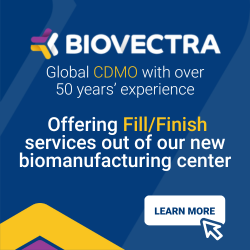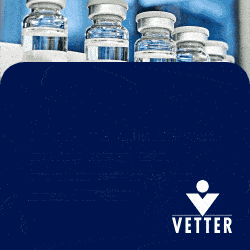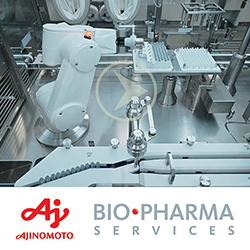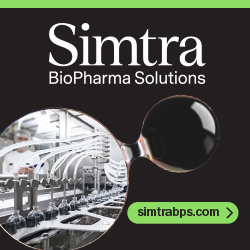NEEDLE-FREE INJECTION - Portal PRIME: A Digitally Controlled, Cloud-Integrated Jet Injection System
INTRODUCTION
Since the invention of the needle and syringe in the 1850s, drug delivery via injection has been a key component of treatment for patients with acute and/or chronic disease presentations. Traditionally, injections have been administered by nurses or other trained medical personnel. The advent in the past 30 years of pen and autoinjectors, however, radically changed this dynamic by shifting the burden of therapy compliance and of repeated dosing in the home setting fully to the patient. Paradoxically, while pen and autoinjectors have driven this shift, because these technologies still use needles as the main instrument of delivery, patient compliance and persistence with injection-based chronic therapy regimes has remained notoriously low due to, among other factors, needle phobia and anxiety and injection-related pain.
Needle phobia, a condition officially recognized by the American Psychiatric Association in its Diagnostic and Statistical Manual of Mental Disorders, affects up to 10% of the population and is associated with a spectrum of mild-to-severe symptoms of distress. Because the condition is triggered by the presence of a needle, no easy solution to the problem exists beyond helping patients relax or avoiding injection altogether.
In addition to needle anxiety and injection-related pain, needle-based injection systems also carry a risk for patients and caregivers of needlestick injuries and of infection and/or disease transmission if improperly used or reused. And from a drug developer’s perspective, needle and syringe systems present physical limitations when it comes to administering drug formulations of high viscosity and/or high concentrations, an increasingly relevant challenge given the rapid rise of biologic drugs on the market.
Overcoming these obstacles, needle-free injection technologies (NFITs) – injection systems designed to deliver drugs subcutaneously without using a needle to pierce the skin – have gained popularity as of late. NFITs harness a high energy boost (from spring- or gas-propelled systems to laser- or electromagnetic force-propelled devices) to send a fine and precise jet of medication in liquid or solid pellet form through the skin. Depending on the energy level, the load can be delivered all the way into the intramuscular space or precisely targeted to the intradermal space or just the subcutaneous level.
While existing NFITs address many of the shortcomings of traditional needle-based injection systems, there is ample room for improvement on technical issues, such as precise control of the injection jet, adaptability to a wide range of drug viscosities and concentrations, and integration with digital medicine platforms.
Portal Instruments’ needle-free and digitally controlled jet injection device, dubbed PRIME, represents the next generation of needle-free drug delivery platforms. The technology, being developed under a global licensing agreement with the Massachusetts Institute of Technology (MIT), addresses many of the aforementioned challenges and allows for comfortable, fast, and safe administration of any injectable therapeutic, including high-concentration and high-viscosity biologics.
In particular, the Portal PRIME system is an ideal delivery platform to ensure consistent and proper delivery of drugs for patients undergoing treatment for chronic diseases that require periodic injections. In addition to addressing issues of needle safety and needle phobia, the device’s tracking and reporting of real-time information on patient behavior can improve compliance.
Chronic disease groups the Portal platform is particularly suited include rheumatology, gastroenterology, dermatology, and ophthalmology. Indications, such as osteoarthritis, gout, painful diabetic neuropathy, Crohn’s disease, psoriasis, and glaucoma, to mention a few, are all potential diseases for which the Portal PRIME system represents a safe, convenient, and reliably precise medication delivery platform for regular in-home injection.
Portal Instruments has established partnerships with a number of pharmaceutical companies to develop complete delivery solutions for drugs to treat chronic conditions, a majority of them being biologics, and is exploring further opportunities with potential new partners.
THE PORTAL PRIME PLATFORM
Portal Instruments leverages a unique IP portfolio of patents for a jet injector-based technology developed at MIT throughout the past 10 years.1 The first device based on this technology to come to market is the Portal PRIME injection system, a handheld device capable of delivering precise amounts of drug subcutaneously, intradermally, or intramuscularly using industry standard nest and tub packaged and prefilled 1-mL Cyclo Olefin Polymer (COP) cartridges (Figure 1).
The Portal PRIME device consists of an electromagnetic actuator controlled by a computer that generates a jet of liquid with a surface area of about 1/7 that of a standard hypodermic needle. This jet of medication, containing the drug of interest in liquid or dry pellet form, pierces through the skin to reach the desired subcutaneous, intradermal, or intramuscular space without the intervention of any physical component to puncture the skin. The effect on the patient is less pain sensation than the traditional needle and syringe (Figure 2).
The actuator at the core of the device enables the precise control (up to a thousand adjustments per second) of the speed of the pressurized jet of liquid, resulting in the accurate targeting of the desired subcutaneous intradermal or intramuscular space with the exact amount of drug needed. The Portal PRIME system currently supports the subcutaneous administration of up to 1 mL of drug preparation in 0.35 seconds.
The device itself meets the highest quality standards for drug handling and delivery systems. The body consists of COP material (Zeonex 1020R), and the plunger and O-ring are made of polycarbonate and the ethylene propylene rubber EPDM, respectively. All these materials are approved for use with biologics and chemical drugs.
The high adaptability of the system further allows the jet injection device to accommodate the delivery of low to very high liquid viscosities (up to 200 cP) while keeping injection efficiencies of 1 mL in less than 1 second. Key to this efficacy is the actuator’s capacity for high-rate feedback and adjustment of the jet’s pressure during delivery, which leads to an even rate of dispensation.
The injection profile itself is biphasic, consisting of an initial penetration phase in which the drug is accelerated to 240 m/s to pierce the skin and reach the desired tissue depth, and a second delivery phase during which the speed is reduced to ensure precise targeting of the drug. The actuator is tightly controlled by a computer feedback mechanism that operates on the microsecond timescale, allowing for real-time adjustments of speed and flow during the approximately 0.3 seconds the injection takes.
The high-frequency feedback mechanism further allows the Portal PRIME system to address a challenge for existing NFITs, namely the variability in the amount of drug delivered per injection. This variability is determined in part by mechanical limitations of existing devices and in part by variations in skin properties across the body and among patients. The real-time feedback mechanism of the Portal PRIME system has resolved this challenge by allowing the fine tuning of the speed and volume of the drug jet as the injection is proceeding.
One of the defining advantages of NFITs is their capability to support injection of drugs in solid form. In this instance, the micropellets contained in a fine powder of a drug of interest are delivered directly and without the need to mix them with a liquid phase. Such delivery presents a big advantage and opportunity in situations when refrigeration is not reliable and thus reliance on dry formulations of drugs is a plus.
The Portal PRIME actuator platform is designed to accommodate the delivery of powdered drugs. Through the actuator, the system can vibrate the powder, energizing the particles and levitating them, creating a fluidized bed that behaves like a fluid and can thus be injected. Portal Instruments sees great potential in such applications and plans to develop programs in this space in the future.
THE BIOLOGICS CHALLENGE
Throughout the past 2 to 3 decades, biologics have burst onto the drug scene with more than 200 marketed products and in excess of another 1000 in the pipeline. Biologics encompass a wide range of molecular entities – from sugars and nucleic acids to proteins and combinations thereof. Paradoxically, however, while many of these products are highly sophisticated and complex in structure and provide powerful and specific therapeutic solutions, their administration still relies in large part on traditional delivery techniques, such as intravenous or parenteral injection.
For the pharmaceutical industry, one additional challenge is the need for differentiating among similar biologic drugs – while first-mover advantage, nuances in mechanism of action and formulation are top differentiating factors, mode of administration has become a key differentiator for patients and healthcare providers alike.
This state of affairs has resulted in a major challenge for biologic drug development. Due to their large size and the need for high doses to achieve a therapeutic effect (sometimes on the order of hundreds of milligrams), biologics need to be formulated at high concentrations. The exponential relationship between the concentration of a biologic and the viscosity of the resulting solution generates highly viscous formulations that require long injection times and larger gauge needles. The net result for patients is an increase in pain experience and reduced acceptance and compliance with treatments.
As a result, the US Food and Drug Administration (FDA), the European Medicines Agency (EMEA), and other regulatory bodies have imposed strict limits on the volume of a drug formulation that can be injected in patients. Great effort is being put into developing techniques to lower the viscosity of biologic solution chemically or to encapsulate or otherwise streamline the delivery of highly viscous formulations. It is in this context that NFITs have emerged as an ideal solution to the biologics challenge.
NFITs are designed to work with injectable formulations of low to medium viscosities and can be used for a broad range of applications without having to modify the design of the injectors. Still, many NFITs have been plagued by an inability to precisely control the pressure applied to project the drug jet subcutaneously, which results in variable results in targeting and dosing. Injecting volumes greater than 0.5 mL has also been a challenge for first- generation NFIT devices.
The Portal PRIME system, which is viscosity agnostic (Figure 3), has addressed these issues through its finely tunable actuator mechanism, which can generate and sustain the high forces needed to deliver solutions with viscosities of up to 200 cP. It is also capable of injecting volumes up to 1.2 mL with greater volumes potentially possible. This unique mechanism should represent a boon to the delivery of monoclonal antibodies and other large protein therapeutics.
PROOF-OF-CONCEPT STUDIES
Numerous studies have been carried out to show the equivalency or superiority in terms of delivery efficacies of NFITs when compared to standard needle injection. Equally, studies have also been done to determine the advantages of NFITs over regular needle injections in as far as patient experience. To validate the clinical potential of the Portal technology, Portal Instruments has also addressed these two issues in a number of studies.
In collaboration with global pharma partners like Sanofi, Portal has developed a pipeline of proof-of-concept applications with various different antibodies. In animal studies, comparison of pharmacokinetic (PK) and pharmacodynamic (PD) parameters for these antibodies (using traditional syringe-based delivery or the Portal platform) showed no significant differences in maximum concentrations recorded (Cmax), times to reach Cmax (tmax) and other PK parameters or in clinical effect as determined by PD analysis.
Portal has performed several tolerability clinical studies and user factors studies and could show that its needle-free drug delivery approach is more tolerated than a typical 27-G needle and syringe and patient preferred.
ADVANTAGE – THE CLOUD
Throughout the past decade, digital health (defined for the purposes of this communication as integrated digital platforms enabling the streamlined management of medical conditions) has erupted in the healthcare market with transformative effects for patients, caregivers, and payers. The Portal PRIME platform has been developed with such new healthcare frameworks in mind.
The backbone of all digital health platforms is an ecosystem of digitally enabled devices and apps to process and integrate information across the whole spectrum of stakeholders involved in monitoring a patient’s treatment and disease progression. Such an ecosystem augments the patient’s experience in a way akin to having a “nurse in the pocket” that provides support, motivation, and education throughout therapy. Integration of all the different elements of the ecosystem happens through the cloud by connecting patients with physicians, pharmacies, and insurers, with electronic health records (EHRs) playing a central role.
The Portal PRIME system has been designed to seamlessly integrate with an online app that connects the device via the cloud to third parties involved in managing a patient’s condition (Figure 4). The app, accessible from a cell phone, tablet, or computer, provides an interface for patients to record their own symptoms and treatment progression in a disease-specific way, and allows integration of information from other wearables or home diagnostics. The system app thus serves as a first line of support for patients, helping them to remember injection frequency or to simply record information about their course of treatment that could be useful down the line.
Through a series of application program interfaces (APIs), the information gathered from the Portal PRIME device (injection time, speed, and volume) can further be relayed directly to a physician’s office, the patient’s pharmacy, or the device maker Portal Instruments to manage patient behavior, need for refills, or potential technical issues with the device, respectively. The patient can also record updates on symptoms and other external factors, such as pain levels or relevant diet information. This information can be integrated via the patient’s EHRs in compliance with existing privacy laws and be used to monitor disease progression and treatment compliance. The system also allows patients to interact directly with their physicians using e-mail, phone, or FAX.
The current version of the Portal PRIME system cloud interface will be compliant with the ISO 27001 privacy and data security standard and follows the US’ Health Insurance Portability and Accountability Act (HIPAA), the European Union’s General Data Protection Regulation (2018), the German Federal Data Protection Act, and Japan’s Act on Protection of Personal Information (APPI) regulations.
SUMMARY
Portal PRIME, Portal Instruments’ needle-free and digitally controlled jet injection device is breaking new ground for injectable drug delivery. The company has thoroughly tested and validated the drug delivery platform and is ready to collaborate with pharmaceutical partners to help them differentiate their products from the competition by providing patients with the most convenient and painless injection solution on the market.
To view this issue and all back issues online, please visit www.drug-dev.com.
REFERENCES
1. Taberner A, et al. Needle-free jet injection using real-time controlled linear Lorentz-force actuators. Medical Engineer & Physics. 2010;34(9):1228-1235. (DOI: http://dx.doi.org/10.1016/j.medengphy.2011.12.010 published online January 16, 2012).

Dr. Patrick Anquetil is Portal Instrument’s Chief Executive Officer and brings more than 18 years of experience leading high-tech bioengineering companies from the lab to the market place and building world-class teams. Prior to founding Portal Instruments, he was Co-founder of SynapDx Corporation, where he had responsibility for development of the company’s business, fundraising, and operational execution. SynapDx went on to raise more than $40 million from leading venture capital firms to develop the first test to detect the early onset of autism using technologies licensed exclusively from Boston Children’s Hospital and George Washington University. Dr. Anquetil began his career as a science and nanotechnology equity research analyst at Susquehanna International Group, authoring and marketing industry and equity research reports to hedge funds and portfolio managers. He earned his PhD in Bio- instrumentation from MIT, his MBA from Harvard University, and his Master’s degree from the ETH in Zurich and the University of Tokyo. His scientific work has appeared in peer-reviewed publications as well as mainstream media, including MIT Technology Review, Wired Magazine, PBS, and CNBC among others.

Dr. Gaspar Taroncher-Oldenburg is a US-based independent biopharma analyst and consultant. He advises public and private companies, research organizations, and academic institutions worldwide on strategic, management, and communications challenges in the translational space. He was previously Founding and Managing Editor of Nature’s and BioCentury Publications’ SciBX: Science-Business eXchange (now BioCentury Innovations). SciBX bridged the translational divide by providing in-depth analysis of the scientific, clinical, and commercial significance of the latest discoveries in the life sciences. Before launching SciBX in 2008, he was scientific editor of Nature Biotechnology for 5 years. He earned his PhD from the Massachusetts Institute of Technology (MIT) and the Woods Hole Oceanographic Institution and a first degree in Biology from the Universidad Autónoma in Madrid, Spain. Prior to joining Nature Biotechnology, Dr. Taroncher-Oldenburg conducted research and taught at Princeton University, MIT, and Tufts University.
Total Page Views: 13765





















